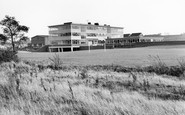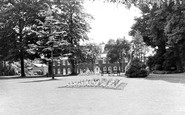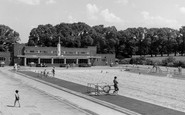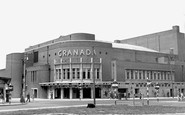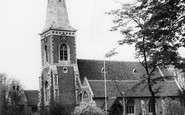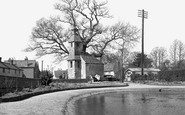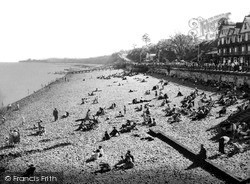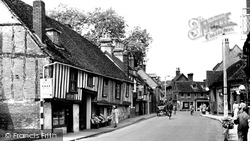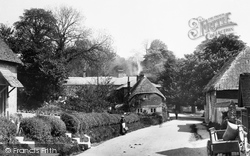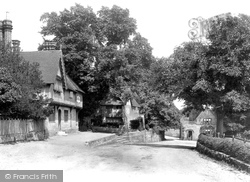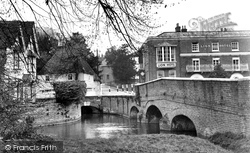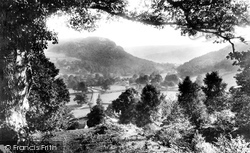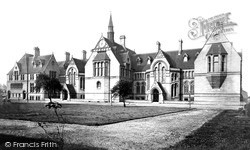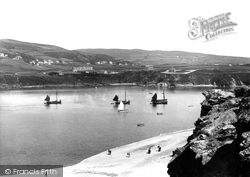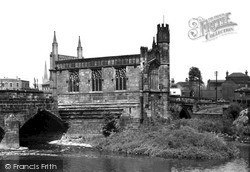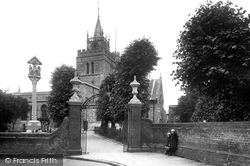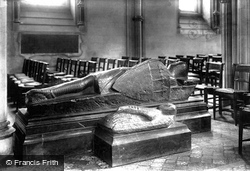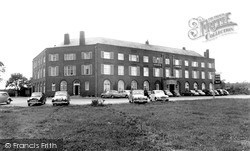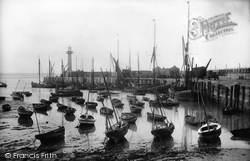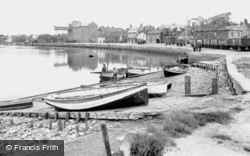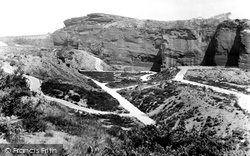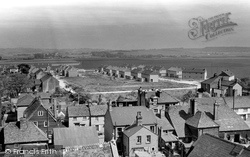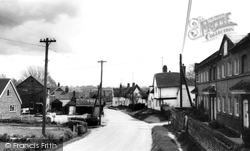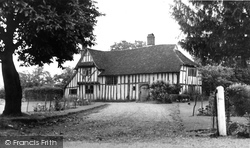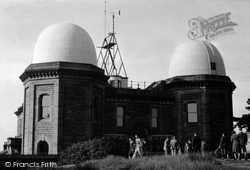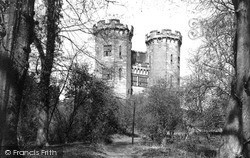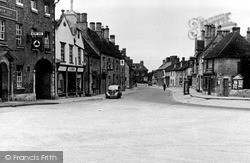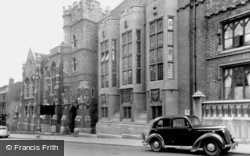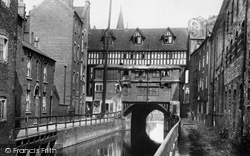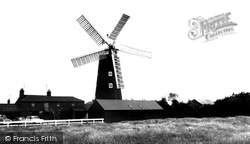Places
18 places found.
Those places high-lighted have photos. All locations may have maps, books and memories.
- Hythe, Kent
- Hythe, Hampshire
- Small Hythe, Kent
- Bablock Hythe, Oxfordshire
- Methwold Hythe, Norfolk
- Hythe, Somerset
- Hythe, Surrey
- Hythe End, Berkshire
- The Hythe, Essex
- Egham Hythe, Surrey
- West Hythe, Kent
- New Hythe, Kent
- Broad Street, Kent (near Hythe)
- Horn Street, Kent (near Hythe)
- Newbarn, Kent (near Hythe)
- Newington, Kent (near Hythe)
- Broad Street, Kent (near Hythe)
- Stone Hill, Kent (near Hythe)
Photos
360 photos found. Showing results 2,801 to 360.
Maps
101 maps found.
Books
10 books found. Showing results 3,361 to 10.
Memories
4,406 memories found. Showing results 1,401 to 1,410.
Top School
I remember doing the transition from the infants school below the British Legion and going to the "Top school" just by the now defunct St Gabriel's church for the first time and paying 1d bus fare to get up there from my home in ...Read more
A memory of Blaengwynfi by
School Days In The Sixties.
I attended this school between 1968 and 1972. I was also a pupil at Hazel Leys Infants and Juniors. Both these schools were on the same site as the Secondary Modern but not shown in this 1955 photo. I presume the Juniors ...Read more
A memory of Corby in 1962 by
Grove House Gardens
I remember Grove House Gardens very well. In the 1950's it was a beautiful park and every year a large garden fete was held there. The afternoon started with a procession from Gt. Northern Rd., down High St., South to the ...Read more
A memory of Dunstable in 1955 by
Bristol Road Selly Oak
My mum and dad had a shop on Bristol Road until about 12 years ago. The first shop was opposite the big post office just up from Birmingham Battery. They had to give up this shop as compulsory purchase for the road ...Read more
A memory of Selly Oak by
Early Times In Colindale
I was born after the war and lived in Sheaveshill Avenue until I was married in 1971. I lived in a house that which had the dubious distinction of being directly opposite to the Titanine paint factory on the other side ...Read more
A memory of Colindale in 1956 by
Falcon Road
We lived in 'The Queen Victoria' pub on the corner of Falcon Road and Ingrave Street. I attended Falcon Brook School. Very near to the school was a little sweet shop where you could buy penny sweets, penny halfpenny lollies, teddy ...Read more
A memory of Battersea in 1960
Growing Up In Wallington
I lived in Bute Gardens West, from Oct 1943 to when I married in 1965. My friends were Donald Scott, Rex Poge, Yashew, an immigrant boy who we nearly killed with a bow and arrow, and brother Dave. We had a club, The ...Read more
A memory of Wallington in 1953 by
Netley Football Club
I was born in Netley Abbey in 1962. My dad and uncle were joint managers of Netley F.C. who had their ground at the rec down by the waterfront. I was only 11 when my uncle died and 12 years old when my dad died so the memories ...Read more
A memory of Netley in 1970 by
In Memory Of My Grandparents
Mr Gran and Grandad had their home in North Stoke, a Mr and Mrs Sallis (Elizabeth and Arthur). They lived in Calendula Cottage, as it was called then. My mother had three sons, Ray the oldest, Tony, and ...Read more
A memory of North Stoke by
The Village I Knew
I used to live at Raymead which was a complex of 24 prefabs, they have been replaced now by a new estate. I come back to Lingfield every year to see the village I grew up in. When I got married to a local lad in 1963 we ...Read more
A memory of Lingfield in 1951 by
Captions
4,899 captions found. Showing results 3,361 to 3,384.
Although increasingly a magnet for day-trippers, by the end of the decade the town boasted two hotels, and four large and up to seventy-five smaller guesthouses.
The hump in the road by the Plough and Dial is the bridge, which gives the street its name. On the right is Sale's garage, with a Pratt's petrol pump delivering Shell fuel.
This scene reflects a time before the First World War, now marked by the Great War Memorial at the road junction.
However, it is delightfully attractive in its own right, as we can see from this view, which shows late 15th-century timber-framed buildings close by the church.
Since the 1920s, the village has been bypassed by the A20.
This famous resort on the Holyhead road, in the narrow, deeply-glaciated valley of the river Conwy, became popular when it was reached by the railway in Victorian times.
The new college buildings were officially opened by the Duke of Devonshire in October 1873. The buildings pictured here are still extant; they are hidden from the main road by later buildings.
By the 1980s, half of all scallops caught in the Irish Sea were being landed in Man.
The old chapel front was purchased during renovation and can still be found sited by the lake at Kettlethorpe Hall.
The gateway seems to dwarf the children by the wall. The War Memorial to the left is in the form of a medieval calvary.
The full-length figure (which bears the arms of FitzOsbert of Drogheda) is probably a replacement procured by the Lord Deputy, Sir Henry Sidney, when the original effigy was broken when the south nave
The hotel replaced the Three Tuns Inn in 1938, and was requisitioned by the army for residential and office use during the Second World War.
They continued to operate into the 19th century, until ousted by the steam packet service in about 1815.
The harbour was developed by the railway companies—wagons of the London Midland Scottish Line are drawn up at the quayside.
By the 1900s the best stone had been worked out from the area so in the 1920s it was laid out as parkland.
They were supported by the RSPB, who said that an airport here would mean an end to the wildlife reserves nearby.
On the left is the weather-boarded former water and steam mill once owned by the Beere family.
The cross passage still leads to the service rooms on the right and the hall to the left, lit by the original six-light window.
Built in 1866 by the Mersey Docks and Harbour Board to provide observations for the benefit of shipping, its records include a full set of observations dating from 1867.
During the Civil War the castle was ably defended by the Dowager Lady Stafford, but after it had fallen, it was slighted.
Stage coaches brought people and business to the town, and in years gone by the streets rang to the clatter of hooves as carriages arrived and left.
It, too, has some fine carved details - particularly the royal crest in the centre, supported by the English lion and the Welsh dragon.
The High Bridge timber-framed buildings had got into a deplorable state by the 20th century, and were extensively restored and rebuilt in 1900 by William Watkins, who also added the three dormer windows
Built in 1813 by Oxley of Alford, it is a five-sailer owned by the County Council and often open to the public.
Places (18)
Photos (360)
Memories (4406)
Books (10)
Maps (101)

